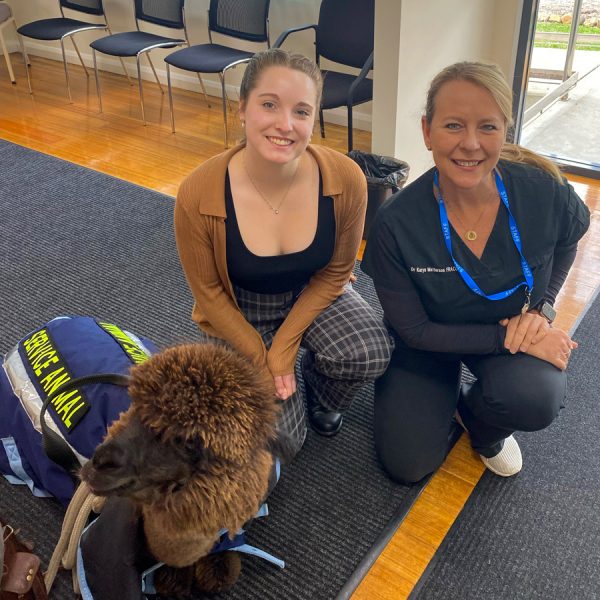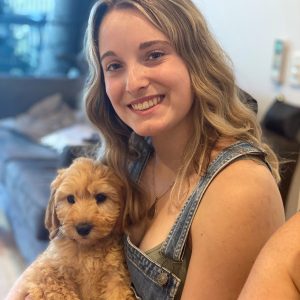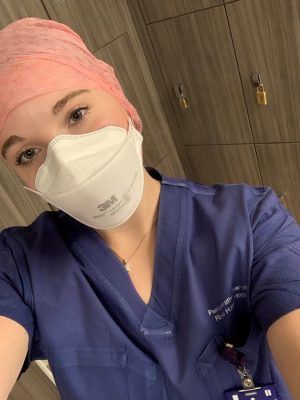In the world of medicine, where dedication and compassion are prerequisites, Tasmanian medical student Isabella Curran stands out as a shining example of a future healthcare leader.
A third-year student with a passion for making a difference, Isabella is already leaving her mark in the field.
Her journey, experiences and aspirations reveal a profound commitment to rural health care and a unique connection to an unconventional service animal.
Isabella’s journey into medicine began with a unique childhood in Saudi Arabia, where her father worked as an engineer.
“It was a culturally different experience, especially for women,” she said.
“I witnessed first-hand the disparities in health care and the challenges faced by people in communities with limited access to quality medical services.”
This exposure ignited a desire in Isabella to pursue a career in medicine, driven by a profound sense of duty to help those less fortunate.
“I’ve seen and heard about experiences from people who have travelled and worked in communities without the same standard of health care we have in Australia,” she explains.
“That’s what made me want to go into medicine, to help communities that don’t have the privileges and resources we’ve been given.”
Isabella’s path led her to undertake a medical degree at the University of Tasmania, with her journey recently taking a unique turn when she ventured into rural general practice.
During a two-week placement at the scenic portside town of Triabunna, Isabella experienced the close-knit community and the emphasis on continuity of care that sets rural health care apart.
“I really appreciated that there was such a close-knit community,” she said.
“They were really focused on the continuity of care. They had doctors who had been working there for more than a decade, allowing for people to maintain the same GP throughout their life.”
In rural areas, healthcare practitioners often take on more responsibility due to limited access to specialists and support services.
This hands-on approach and the need to provide comprehensive care resonated with Isabella.
“They don’t have the option of visiting specialists without extensive travel. I appreciated that the clinic provided not only general practice, but they supplied the community with pathology, a podiatrist, and other necessary services,” she said.
One striking aspect of Isabella’s rural placement was her encounter with a unique service animal – an alpaca.
Isabella’s human patient had initially relied on a support dog but found that an alpaca provided the comfort and companionship she needed.
“Animals are a great way to provide emotional support for patients struggling with their mental health,” said Isabella.
“They are great at providing comfort and companionship to patients in need.
“The patient’s use of an alpaca as a service animal was a fascinating and eye-opening experience for me.
“It seemed like an unconventional support animal to choose at first, however the experience reminded me of how important it is to personalise treatments to every patient and their values.”
Isabella’s journey into medicine, her experiences in rural health care, and her encounters with unique situations like the service alpaca are shaping her perspective and aspirations.
One thing is clear: her heart lies in rural and remote health care, where she hopes to make a meaningful impact.
“I definitely have a passion for working in rural health in the future,” she said.
“Organisations like GPSN help connect students like myself with peers and experienced healthcare professionals, providing valuable insights into the medical field,” she said.
Isabella’s story is a testament to the power of compassion, curiosity, and a deep sense of purpose which creates our future GP leaders.






